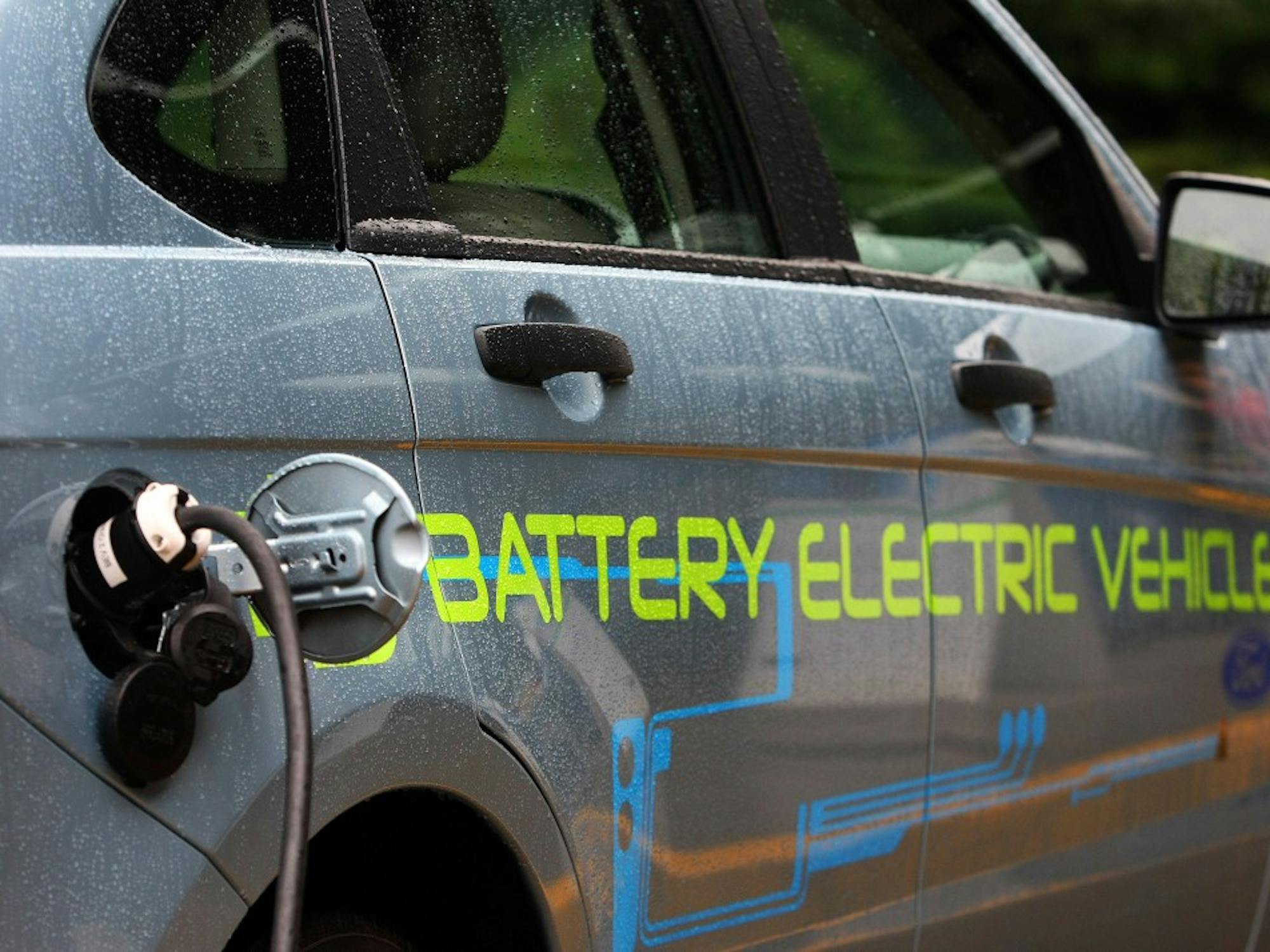SEATTLE — After years of hype, it looks as though the mass-produced, all-electric car is really on its way.
The Seattle area is poised to become one of the key markets for the initial wave of electric cars, in part because of plans to begin building a network of more than 2,000 charging stations throughout the region next year.
Funded by part of a $100 million federal Department of Energy economic-stimulus grant, the charging stations are to the electric car what the cellphone-tower network was to the cellphone. Just as the phones needed towers to make them functional, the network of charging stations will make it practical to own a car that does not use gas.
By December 2010, drivers in Seattle should be able to buy mass-produced, plug-in electrics that create no emissions and run for pennies a mile.
“It’s going to blow peoples’ doors off how fast this transition is going to happen,” predicted U.S. Rep. Jay Inslee, D-Wash., who took a spin around the Microsoft campus recently in an all-electric Ford Focus.
As part of the DOE grant, the Puget Sound area has been promised 1,000 Nissan LEAF all-electric cars, which will be sold beginning in December 2010.
But that’s only the start.
The Seattle area will be one of the major markets for other brands of electric cars because of the charging network, said Steve Marshall, a senior fellow at the Cascadia Center, a Seattle-based transportation think tank. Ford, for example, plans to bring an electric commercial van to the area in 2010, one which will run for about 3 cents a mile and is designed for small-business owners and package-delivery fleets.
The electric Focus will hit the market in 2011, as will the Chevy Volt, a car that can drive the first 40 miles on electricity before a gasoline-powered engine kicks in, driving a generator that provides electric power beyond 40 miles.
Inslee predicts that, within a decade, a significant portion of the American car fleet will be made up of electric cars, and “we’re trying to make Washington the epicenter of this revolution,” he said.
And the car companies know it.
“Washington is a lot more aggressive and more hep on this than any part of the country,” said David Berdish, manager of sustainable business development for Ford Motor Co.
State and federal officials and business leaders recently gathered at the Microsoft campus for a Cascadia-sponsored conference called “Beyond Oil.” They talked about building sustainable communities and ensuring the electrical grid could handle the power draw if thousands of people all tried to recharge their cars at the same time.
Outside, a half-dozen Tesla roadsters — all-electric sports cars that cost about $100,000 — were lined up in the parking area. But it was the somewhat-homely Ford Focus, which arrived on a flatbed truck after an overnight trip from San Francisco, that attracted the buzz, in part because its price is expected to be within the reach of the average family when it comes to market in 2011.
The Seattle area is expected to be a leader in electric cars for a couple of reasons.
For one, we get most of our power from relatively cheap, carbon-neutral sources. Statewide, hydroelectric accounts for about 66 percent of our energy; for Seattle City Light, it accounts for about 90 percent, according to city and state statistics.
We also have a mild climate, with summers that don’t require power-sucking air conditioning and winters that don’t involve battery-killing temperature plunges.
And already we’re crazy about hybrids, cars like the Prius that top gas mileage. Washington ranks fourth among states in the number of hybrids per 1,000 people. About 50 of the Tesla roadsters have been sold here. Finally, government officials are working to streamline the process of getting car-charging plugs installed. The state Legislature this year passed a law encouraging state and locals to develop the infrastructure to accommodate electric cars.
The $100 million DOE grant is being shared by five other areas around the country: Portland, Salem, Corvallis and Eugene, Ore.; San Diego, Calif.; Phoenix and Tucson, Ariz.; and Chattanooga, Knoxville and Nashville, Tenn.









